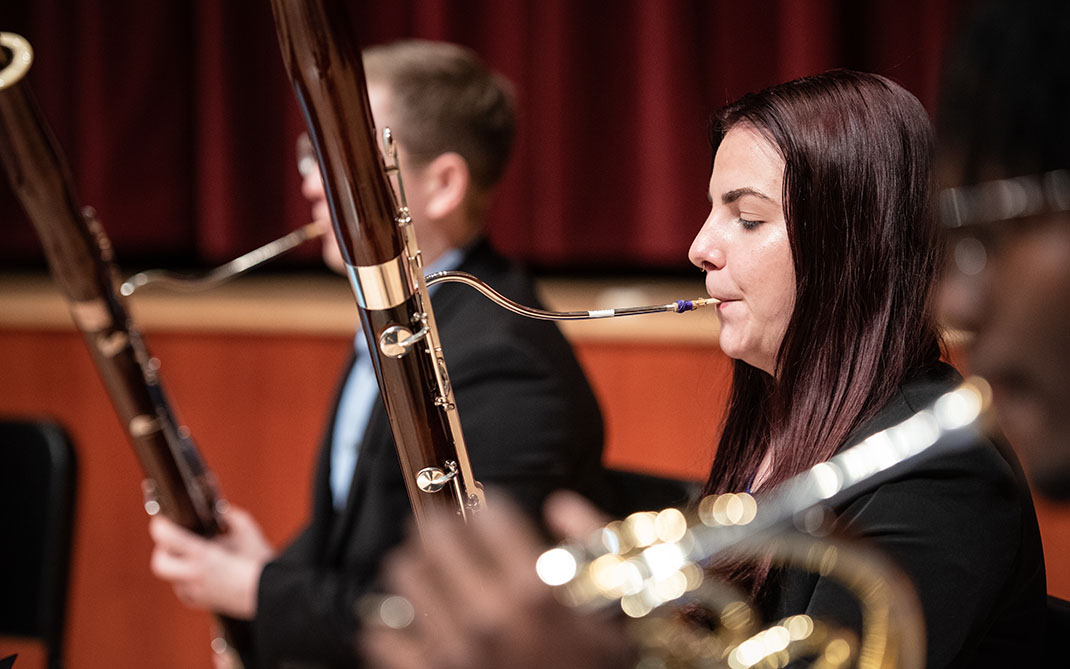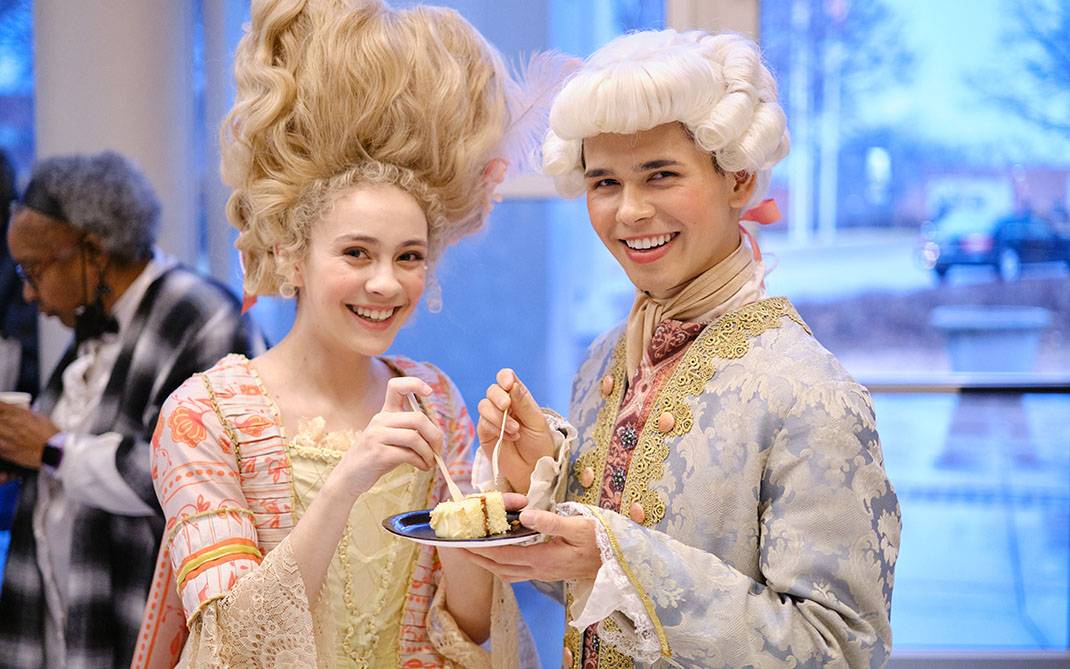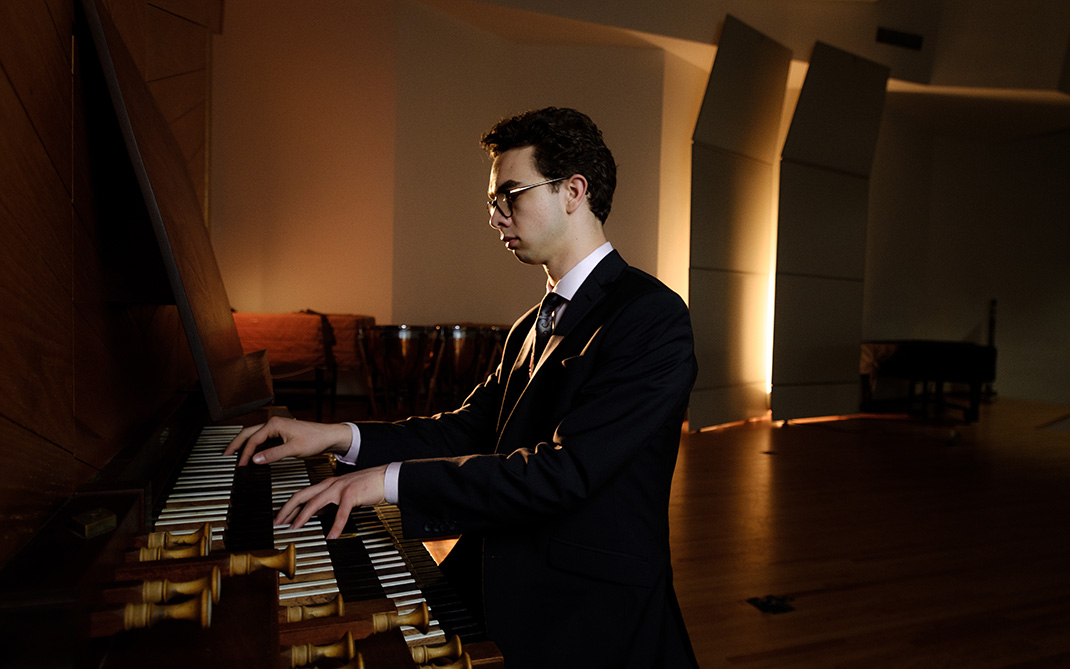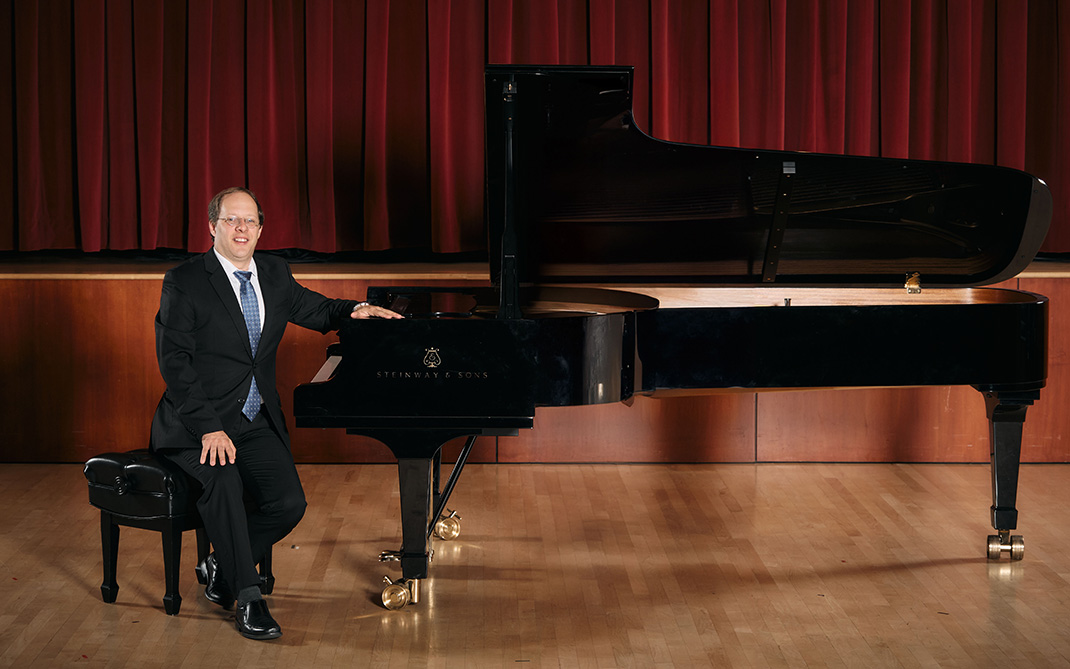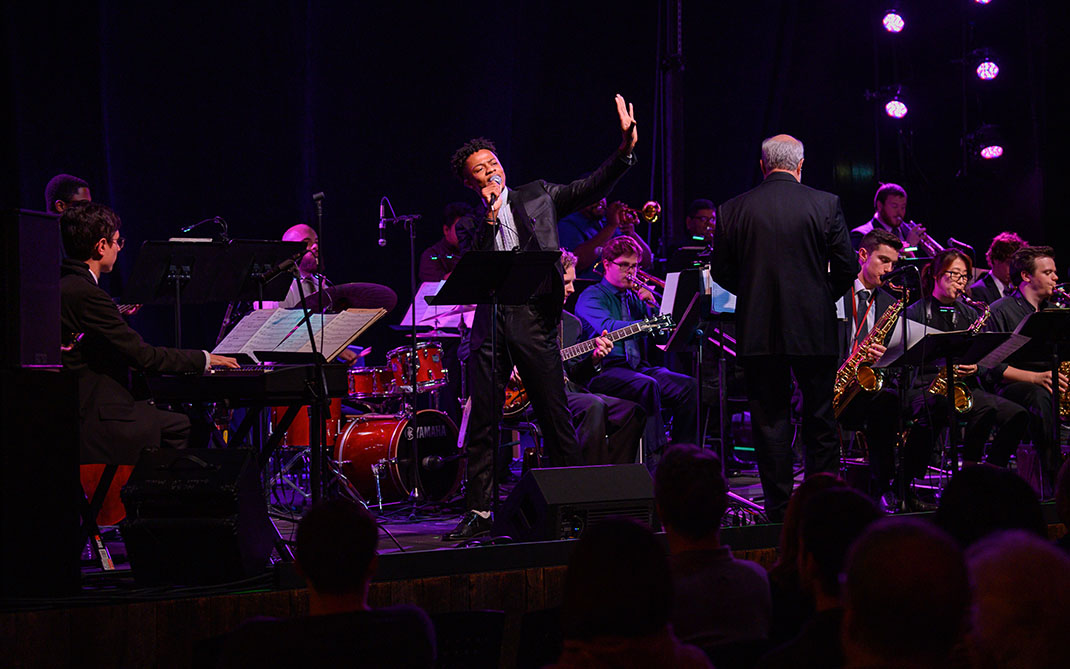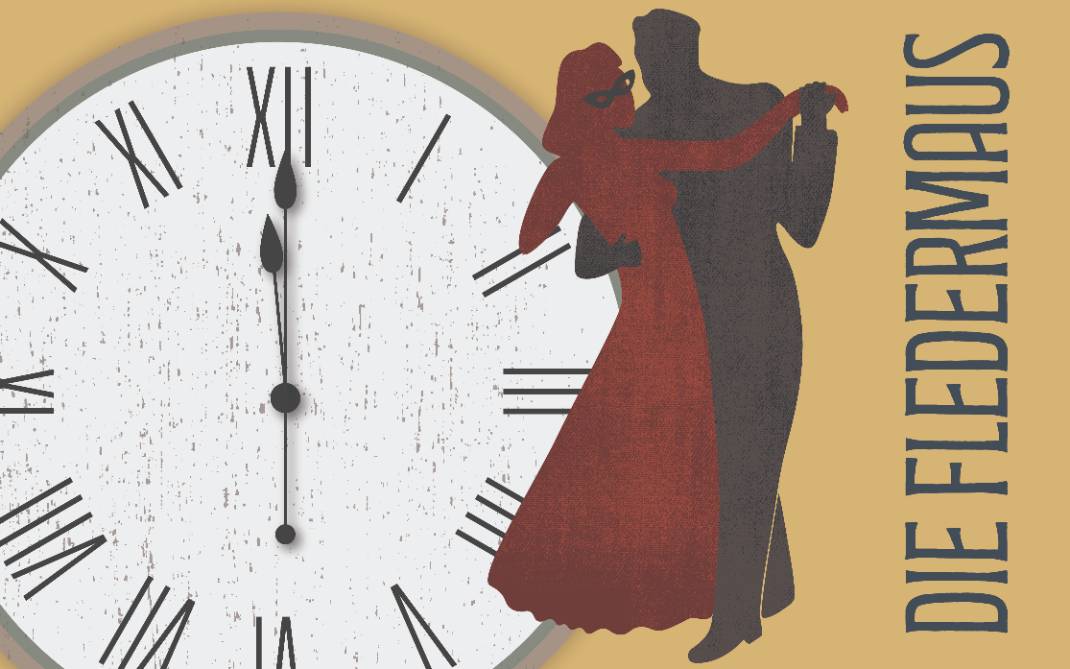Student entrepreneurs bring music to the community
It’s not a revelation to say that artists are masters of entrepreneurship. It’s part of what makes them artists—being risk-takers, owning their work, innovating, creating, leading society toward new ideas.
What is perhaps a more recent idea is the intentional integration of an entrepreneurial mindset into the formal education of artists-in-training in conservatories like the UNCSA School of Music. And, in true entrepreneurial fashion, students are taking the initiative into their own hands through the creation of their own student-led organizations that also serve the community.
Two of these organizations, the Cross The Line Project and Grace Notes, bring the joy of music to the broader community in diverse and meaningful ways; specifically, by broadening access to classical music and by putting instruments into the hands of student musicians at local middle and high schools.
These projects and others like them have grown organically through student participation in UNCSA’s ArtistCorps program, run by Rebecca Nussbaum in the Office of Community Engagement. ArtistCorps utilizes the skills of UNCSA students and graduates to provide arts instruction, integration and exposure to school-age children and seniors in the Winston-Salem community.
As a graduate student in the School of Music and member of ArtistCorps, Sami Eudy Bruemmer (MM Music ’17) founded the Cross The Line Project as a way to make classical music accessible to a broader audience.
“It began as a group of students trying to find ways to reach out into the community and make the arts something that all can understand, connect with and enjoy,” Bruemmer says. Since then, the organization has hosted free performances in diverse venues like Krankies café, Old Salem Museums & Gardens and Malloy Jordan / East Winston Heritage Center.
Cross The Line was also awarded a grant by the Arts & Science Council of Charlotte, allowing the group to work with students in that city’s schools this year. The group brought in an SATB (Soprano, Alto, Tenor, Bass) choir and string quartet for four workshops that included performances, warm-ups and other activities for the students.
Grace Manning, a third-year undergraduate voice student, is currently at the helm as executive director of Cross The Line, now rounding out its fourth year. The group continues to brainstorm programming that is interactive and builds relationships with the audience – an important part of its mission.
Being in Cross The Line has really allowed me to have a different sense of community outside of the School of Music and UNCSA. It makes a lot of what we’re doing as music students feel meaningful.
Grace Manning, Executive Director of Cross The Line
And that sense of connection goes both ways. “Being in Cross The Line has really allowed me to have a different sense of community outside of the School of Music and UNCSA,” Manning says. “It makes a lot of what we’re doing as music students feel meaningful.”
Bruemmer’s work has translated into professional skills that she calls on in her photography business and as a freelance musician and music teacher. “I draw on the skill set that I learned from Cross The Line every single day, especially in my ability to communicate the value of the arts, to create a budget and manage finances, to be adaptable and resourceful, and to have strong organizational skills.”
Grace Notes shares a similar origin story. Like Bruemmer, its founder, Brittany Thomas (PAC Music ’19, MM ’18, BM ’16) was a member of ArtistCorps when she saw a need in the community.
While working at a local school, Thomas realized some of the students in the band program had instruments that didn’t work properly. In other cases, they had no instruments at all. Thus, Grace Notes was born.
During the 2018-19 year, Grace Notes began collecting donated instruments through the nonprofit Sunnyside Ministries, a UNCSA neighbor. The instruments are repaired at B & F Repairs in Greensboro, which offers a significant discount in exchange for help with repairs from current Executive Director Sarah Smith.
For Thomas, building the foundation of Grace Notes was an exercise in listening. “I learned it’s really important to show up and ask ‘How can I help?’” she says. “Make sure you are listening to the community’s needs before saying ‘I am doing this.’”
Smith’s work with Grace Notes has led to the discovery of a new career path. The fourth-year undergraduate will be joining the band instrument repair program at Minnesota State College Southeast in Red Wing, Minnesota, this fall.
The ongoing value in student-run organizations at UNCSA is that they provide opportunities to build entrepreneurial skills and relationships in the community for each round of students who inherits them.
Some alumni, like Kendra Harding (MM Music ’17), also carry their community work and relationships with them beyond graduation. In 2016, Harding brought the Lullaby Project to ArtistCorps, working with mothers in the community to write and record original lullabies for their children.
The Lullaby Project currently partners with Imprints Cares, an organization that has been serving Winston-Salem families for 50 years. Harding aims to serve eight to 12 families this year.
I’ve learned the value of long-term engagement in service in the community. It’s about investing your time rather than donating it.
Kendra Harding, The Lullaby Project
“I’ve learned the value of long-term engagement in service in the community,” she says. “It’s about investing your time rather than donating it.”
For Interim Chancellor Brian Cole, these student-led organizations are the embodiment of the evolving role of artists through what he sees as social entrepreneurship. “These projects are examples of ideas that students had that came out of instilling that mindset of enterprise and entrepreneurship,” he says, “combined with the desire to make a difference.”
This article appeared in the Spring 2020 issue of Scene.
READ THE COMPLETE ISSUE
April 27, 2020
